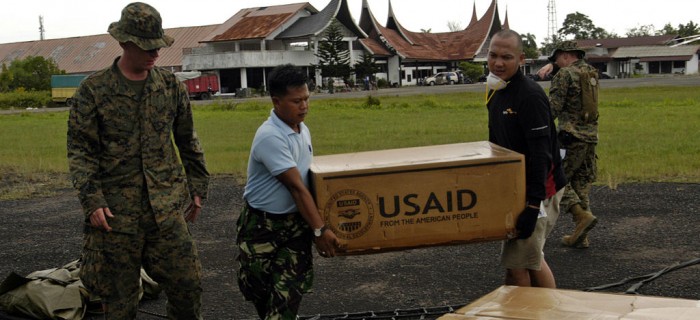Manufacturing a Crisis: Food Aid in Indonesia
June 1999, Development Report No. 13
As the U.S. and European Union finalize plans to ship large quantities food aid to Russia, a senior diplomat at a western embassy in Moscow sums up the situation bluntly: I don’t know of a single person in this building who thinks it is necessary…” ”There is no shortage in this country,”says one Moscow-based aid expert. “The U.S. and the EU have different reasons for sending food and the Russians are willing accomplices. But by no means is this a humanitarian effort. He says aid would be best spent purchasing food within Russia to redistribute to poorer regions or on providing credit and assistance to Russian farmers. – Financial Times, February 5, 1999
The foregoing account could well be a description of the current situation in Indonesia. Despite widespread reports to the contrary, Indonesia is not suffering a famine or food crisis in the traditional sense. This is the firm conclusion of an investigating mission that visited Indonesia in late January and early February 1999, under the sponsorship of the Southeast Asia Food Security and Fair Trade Council (referred to as the Council).
Despite widespread reports to the contrary, Indonesia is not suffering a famine or food crisis in the traditional sense.
The sixteen-member mission visited several sites in Jakarta; then fanned out to other parts of the archipelago. They focused on data gathering at the micro or community level through semistructured interviews with the urban poor, farmers, small rural tradespeople, fisherfolk, government officials, various church groups, non-governmental organizations (NGOs), and relief organizations.
Correlation of micro-data with macro-data yielded the main conclusion: that the so-called “food crisis” stemmed from mistaken projections of rice output. These projections were then manipulated by certain forces within the country and used to consolidate their political position—with aid agencies acting as witting or unwitting accomplices.


 Help Food First to continue growing an informed, transformative, and flourishing food movement.
Help Food First to continue growing an informed, transformative, and flourishing food movement.




